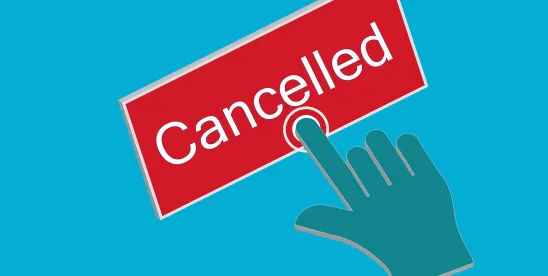The final text of the amended Negative Option Rule, featuring the new “Click to Cancel” program, goes into effect this week on Wednesday, January 15, 2025, and should become enforceable approximately four months later on Wednesday, May 14, 2025. The FTC believes that this rule will help the FTC get money back to people who are misled by sellers who don’t tell the truth or leave out necessary information, people who get billed when they didn’t agree to pay, and sellers who make it hard, or impossible, to cancel. According to FTC Commission Chair Lina M. Khan, “Too often, businesses make people jump through endless hoops just to cancel a subscription. The FTC’s rule will end these tricks and traps, saving Americans time and money. Nobody should be stuck paying for a service they no longer want.”
What is a negative option?
Negative options refer to transactions that include automatic renewals, continuity plans, and free- or fee-to-pay conversion offers where a buyer’s silence or failure to affirmatively act to either reject a good or service or to cancel the transaction is interpreted as continuing acceptance of the plan or offer. In other words, if the buyer does not cancel or take action to suspend the transaction’s recurring nature, they will continue to be periodically charged for the goods and services they may not have intended to purchase.
Scope of the amended rule
The amended rule applies to sellers of nearly all negative option programs (regardless of whether they originated online, via phone, or in-person), and the rule applies to both business-to-business and business-to-consumer transactions.
What does the Negative Option Rule prohibit?
The rule prohibits: (1) misrepresentations of any material fact made while marketing using negative option features; (2) requires sellers to provide important information prior to obtaining consumers’ billing information and charging consumers; (3) requires sellers to obtain consumers’ unambiguously affirmative consent to the negative option feature prior to charging them; and (4) requires sellers to provide consumers with simple cancellation mechanisms to immediately halt all recurring charges.
One of the biggest concerns of the FTC is for sellers that give free-trial subscriptions to consumers and then those consumers complain that they didn’t know the details of the subscription obligations and/or the consumers have been unable to cancel the subscription. The rule requires important information to be truthful, clear, and easy to find. Consumers have to know what they’re agreeing to before they are signed up. Sellers have to be able to show that the consumers knew what they agreed to before they signed up. The rule requires there be a way to cancel any subscription that is as quick and easy as it was to sign up.
Potential enforcement
The rule indicates that violators can be held responsible for redress and other civil penalties. Sellers can expect litigation over the following allegations involving negative options for: 1) misrepresenting any material fact made while marketing goods or services; 2) failing to clearly and conspicuously disclose material terms prior to obtaining a consumer’s billing information; 3) failing to obtain a consumer’s express informed consent before charging the consumer; and, 4) failing to provide a simple mechanism to cancel and immediately halt charges. The rule requires sellers to implement a framework that prevents the aforementioned, and violations can result in not just having to refund the consumer’s fees, but also being held responsible for civil penalties.
Rule is not popular with everyone
The rule faces multiple overlapping legal challenges across the country, such as in the Fifth Circuit Court of Appeals. The rule also faces a change in administration, and one of the most relevant concerns may be the sharp dissent from recently appointed FTC Commissioner Melissa Holyoak.
Remember the state rules
In addition to the FTC rule, negative option sellers should be mindful that automatic renewals remain a priority for state regulators. California, for example, updated its specific requirements four times in the last 14 years, the latest text of which explicitly applies to “free-to-pay conversions” of the type regulated in the updated federal rule, among other textual similarities. The state’s recent stringent update to the law will become effective on July 1, 2025, and mirrors, and in some aspects goes beyond, the FTC rule.




 />i
/>i


